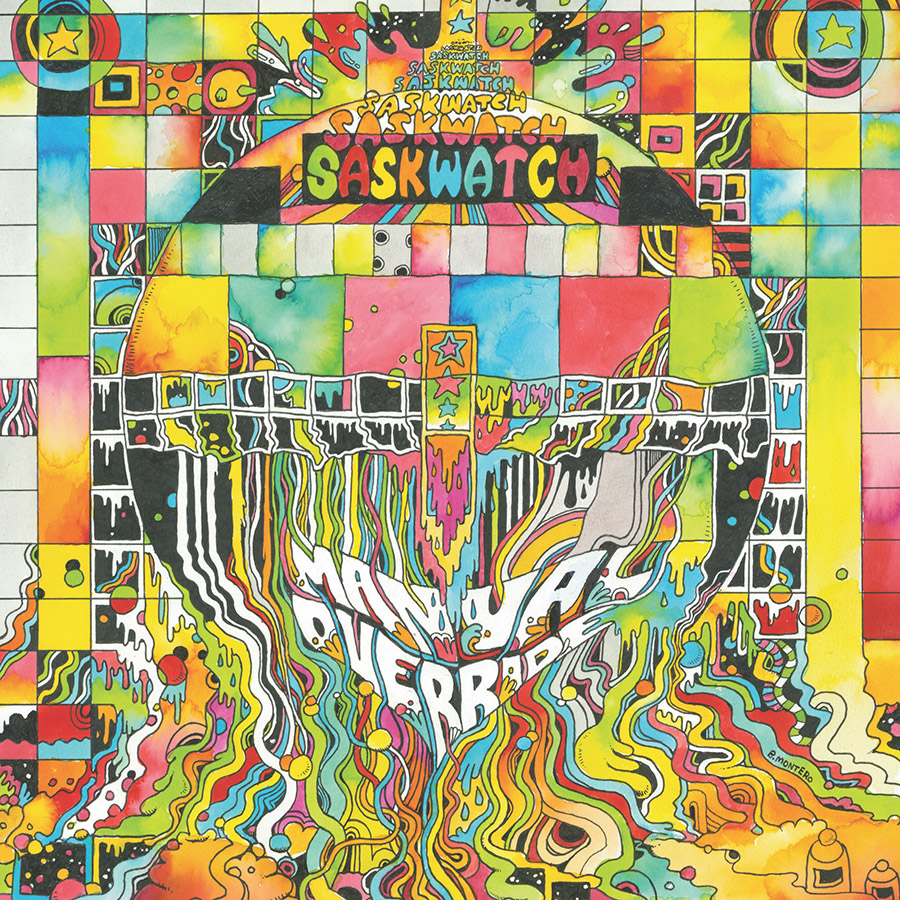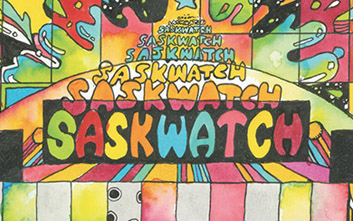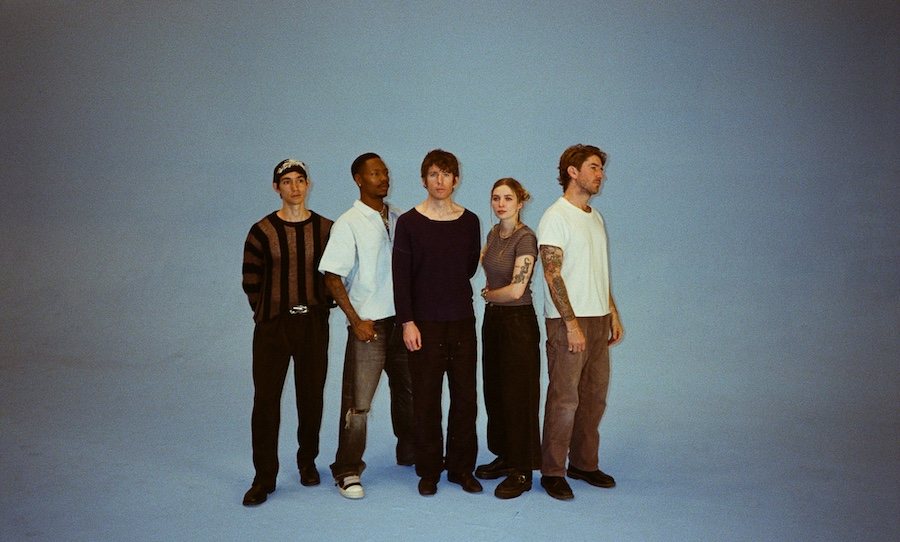This week brings the fourth full length album from Melbourne’s full size outfit Saskwatch. In their own words, Manual Override “marks a special moment for the band” as they take total control of their work.
Written, co-produced and mixed by Saskwatch, even the press release radiates a sense of pride that only comes from seeing a project through every step of its dreamy way.
In fact, Saskwatch are so into this release, they have pretty much written this review for me in that presser. And I am not complaining; writers spend days chasing bands for snippets of insight into their work, let alone the full breakdown of every single track.
I mean, I could just paraphrase and be assured that I am totally and utterly, unquestionably correct. Which would be nice, for once. But I won’t.

Rippling with funk, psychedelia but most of all, artistic confidence, Manual Override is a record loved all the way from conception to distribution.
Opening with December Nights, according to the band this should “instantly [pull me] in and nicely sets the colourful and psychedelic mood of the album with a flare of indie-rock fused with warm pop-tones and breakbeats.”
And they are damn right; I am definitely drawn in by an overdriven guitar riff, sitting nicely at odds with a flute-like melody. And Then There’s You is a sweet track; dreaming and pensive. Saskwatch draw your attention to a “beautifully phased synthesizer and a bass line reminiscent of The Beatles”. While The Beatles didn’t immediately spring to mind, this is definitely a nostalgic, hazy gem.
Moving on to North Terrace and once again I fall right in line with the idea that this track “invokes a more stripped back RnB sound”. It does, and its slow beats and ambient guitar work carry us forward on a dream.
Finger Painting is a bright and cheery interlude, with a honky tonk piano and a steadily triumphant, kaleidoscopic finish.
Saskwatch have named the innermost reaches of Manual Override for the zodiac sign du jour; Gemini. This one is “injecting funk into the journey”. I would say that is severely underplaying rhythms which span a marching beat, funk and even a touch of bossa nova.
Switching between indie-pop feels and swathes of disco, Gemini seems to morph continually and wonderfully.
As I move further into the album, the exceptional detail is becoming clearer as this record evolves and multiplies. The description “kaleidoscopic” has possibly never been so apt, from the meeting of neo-classical and psych on Fortress to the futuristic industrialism of Shrink Violet.
Edging towards the end of the album, Heaven Seems So Far really is “a profound and haunting track”. Immediately appealing, it has the feel of that one slow song on every 2000s rock album which always caught you off-guard. There’s even an emotive key change to fit the bill.
Subtle production elements feed the atmosphere; trembling strings, echoing guitars, and a fantastic outro reminiscent of King Crimson. And finally, Renaissance Man “weaves together floating guitars and enticing vocals”. Not only that, but evocative piano and perhaps the most tangible lyrical content.
Whether you’re the band cross-examining their own work or a journalist worming their way through a fantastic album for the first time, Manual Override genuinely warrants the kind of exploration and dissection reserved for LPs which stand the test of time.
The record is out this week via Grow Yourself Up – a sentiment which the band seem to have taken on board wholeheartedly. In Manual Override Saskwatch present an album which is fascinating, varied and continues to push at the band’s boundaries.
And I came up with that one all by myself.



